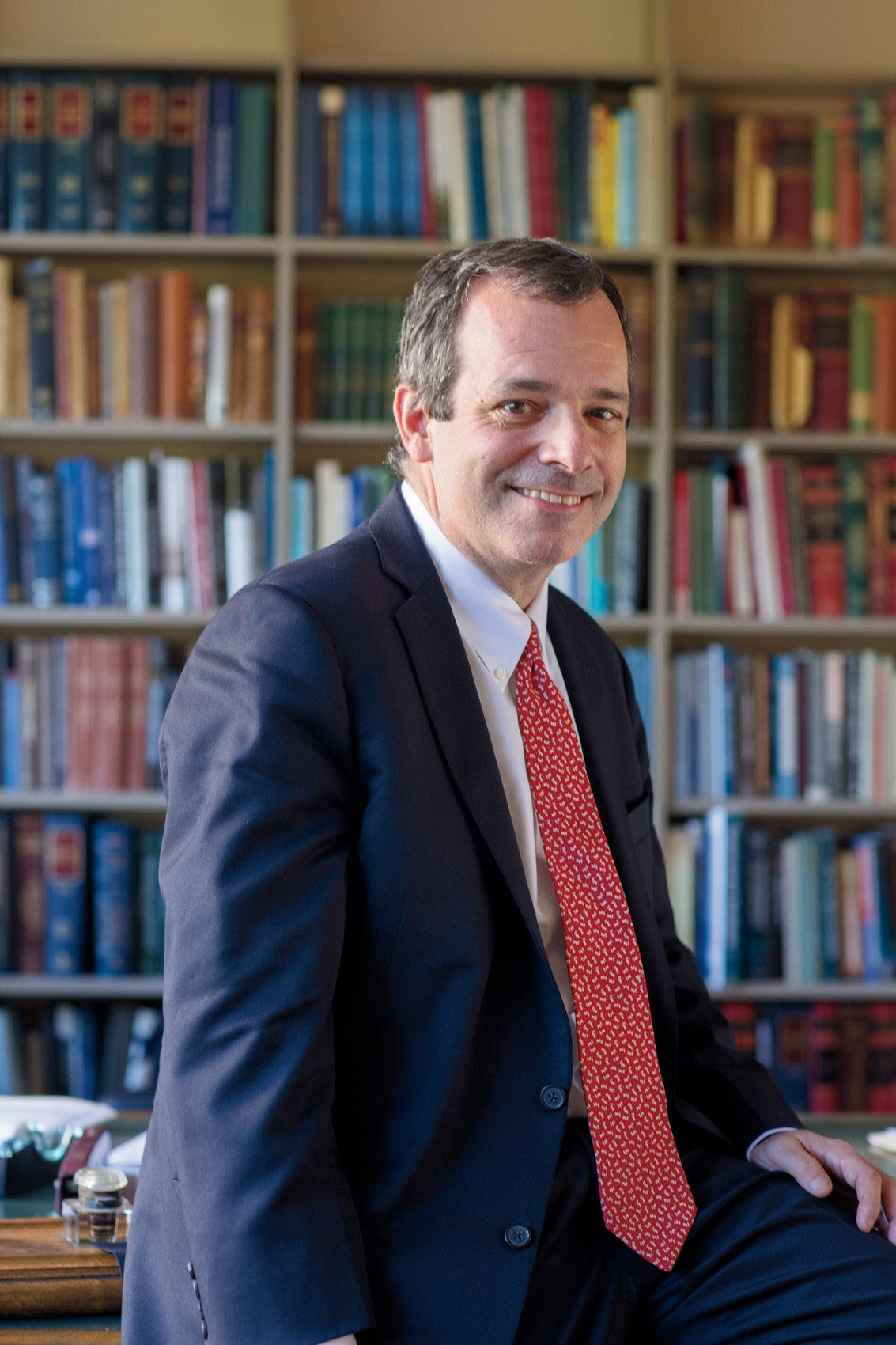Harvard Law School community members are engaged in exciting and impactful work on issues of large import—work that is framing national conversations among leaders and policymakers. The stories in this issue of the Bulletin reflect a sample of this influential work. They also reflect our collective determination to foster a vibrant intellectual community defined by diversity of thought and by a premium put on mentorship and forging connections across generations of faculty, students, and alumni.
I am especially excited that this issue of the magazine showcases the multifaceted work of five assistant professors with diverse interests and expertise in the field of criminal justice: Andrew Manuel Crespo ’08, Elizabeth Papp Kamali ’07, Anna Lvovsky ’13, Daphna Renan, and Crystal Yang ’13. A great deal of their scholarship tackles the same pressing issues of criminal law and justice that underlay the work of our late colleague William Stuntz, whose monumental book—“The Collapse of American Criminal Justice,” published in 2011—diagnosed increasingly acute pressures upon America’s criminal courts and prisons, with corresponding prognoses of crisis in the absence of reform. These dynamic scholars are doing rigorous doctrinal, historical, institutional, and quantitative research that helps us understand more deeply our criminal justice system and informs its effective reform. Their work continues a great tradition of a long line of HLS scholars whose writing has illuminated the moral, political, and economic challenges posed by crime and punishment in America.
In a related vein, in this issue of the Bulletin, we also proudly highlight the work of our distinguished graduate and MacArthur genius grant winner Bryan Stevenson ’85, who founded the Equal Justice Initiative, the renowned legal advocacy organization working on behalf of the condemned and wrongfully convicted. Last year he and EJI opened a striking and important new museum and memorial in Alabama, connecting America’s shameful legacy of slavery and lynching to modern-day failures in our criminal justice system.
I am also confident that you will be interested in our coverage of Celebration 65, the gathering we hosted in September marking the 65th anniversary of the first entering class at HLS to include women. It was an enormous privilege for me personally to welcome the amazingly accomplished women who came back for C65, including Nicole Kerno, Ann Pfohl Kirby, and Judge Sondra Miller, three pioneers from the Class of 1953. It was truly awe-inspiring to reflect on the attendees’ narratives, leadership, and experiences. In the pages that follow, the Bulletin gathers the perspectives of some of the alumnae who returned to campus to participate—including a former head of state and many distinguished leaders in the law, government, business, and throughout our profession.
This edition also includes a feature story on the increasingly important role of HLS blogs in the realm of up-to-the-minute legal scholarship. Not surprisingly, HLS faculty blogs and online forums are tremendously influential in a wide variety of fields, attracting readers and contributors from the highest levels of government, academia, law, and business. They also support robust debate and discourse among people with widely different perspectives. I highly recommend them if you are not already following them.
As always, the magazine brings you a roundup of the latest faculty scholarship, alumni authors, campus happenings, and the news sent in by you, our terrific alumni. We hope you enjoy it!
